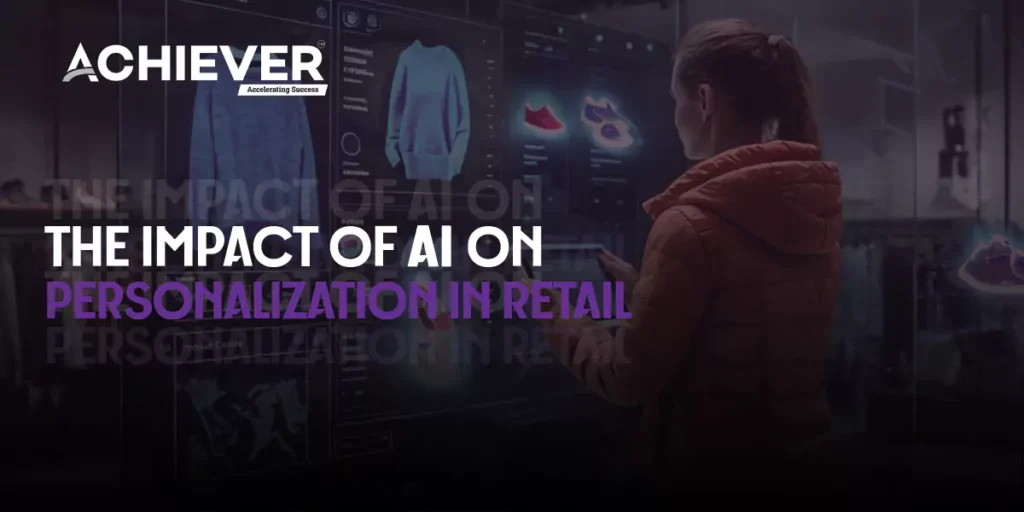In the fast-paced world of retail, where competition is fierce and consumer expectations are at an all-time high, businesses are constantly seeking innovative ways to enhance customer experiences. One of the most transformative technologies shaping the retail landscape today is artificial intelligence (AI). With its ability to analyze vast amounts of data and predict consumer behavior, AI is revolutionizing the way retailers personalize their offerings, leading to increased customer satisfaction, loyalty, and sales.
Understanding Personalization in Retail
Personalization in retail refers to the practice of tailoring shopping experiences to individual customer preferences, behaviors, and needs. Traditionally, this involved basic tactics like addressing customers by name in emails or offering general recommendations based on past purchases. However, with the advent of AI, personalization has taken on a new dimension, enabling retailers to create hyper-personalized experiences that resonate deeply with consumers.
AI Technologies Driving Personalization
Several AI technologies are at the forefront of personalization in retail:
- 1. Data Analytics and Machine Learning: AI algorithms can process and analyze large datasets to uncover patterns and trends in consumer behavior. This analysis helps retailers understand what products customers are likely to buy, when they are likely to purchase, and how much they are willing to spend. Machine learning models continuously improve over time, ensuring that personalization efforts are based on the most up-to-date information.
- Natural Language Processing (NLP): NLP enables AI systems to understand and interpret human language. Retailers use NLP to analyze customer reviews, social media comments, and chat interactions. This understanding helps businesses gauge customer sentiment and preferences, allowing for more tailored marketing strategies and product recommendations.
- 3. Chatbots and Virtual Assistants: AI-powered chatbots provide immediate assistance to customers, answering queries and offering personalized product recommendations. These virtual assistants can learn from interactions, improving their ability to serve customers over time. By providing instant support, retailers enhance customer satisfaction and streamline the shopping process.
Benefits of AI-Driven Personalization
The integration of AI into retail personalization strategies offers numerous benefits:
- Enhanced Customer Experience: Personalized experiences make customers feel valued and understood. When retailers recommend products based on individual preferences and behaviors, customers are more likely to find items they love, resulting in higher satisfaction levels.
- Increased Conversion Rates: AI-driven personalization can significantly boost conversion rates. According to a study by Epsilon, personalized emails deliver six times higher transaction rates than non-personalized ones. By offering relevant product recommendations at the right time, retailers can guide customers down the purchase funnel more effectively.
- 3. Improved Customer Retention: Retaining existing customers is often more cost-effective than acquiring new ones. Personalized experiences foster loyalty, as customers are more likely to return to brands that understand their needs. AI can analyze past purchase data to create loyalty programs tailored to individual customers, further enhancing retention efforts.
- Optimized Marketing Campaigns: AI helps retailers create targeted marketing campaigns by analyzing customer data to segment audiences based on behavior, preferences, and demographics. This level of segmentation allows for more effective messaging, leading to higher engagement rates and a better return on investment (ROI).
- 5. Inventory Management and Demand Forecasting: AI’s predictive analytics capabilities extend beyond customer interactions. Retailers can use AI to forecast demand for products based on historical sales data, seasonal trends, and market conditions. This insight allows businesses to optimize inventory levels, reducing costs associated with overstocking or stockouts.
Challenges and Considerations
Despite the many advantages of AI-driven personalization, retailers must navigate several challenges:
- Data Privacy Concerns: With the increasing reliance on customer data for personalization, privacy concerns are paramount. Retailers must ensure they comply with data protection regulations, such as the General Data Protection Regulation (GDPR), and be transparent about how customer data is collected and used.
- 2. Integration with Existing Systems: Implementing AI technologies requires integrating them with existing systems and processes. This can be a complex and resource-intensive task, particularly for smaller retailers with limited budgets and technical expertise.
- Maintaining a Human Touch: While AI enhances personalization, it’s essential for retailers to strike a balance between automation and human interaction. Customers still value personal connections and authentic engagement, so brands should ensure that AI complements rather than replaces human interactions.
The Future of AI in Retail Personalization
The future of AI-driven personalization in retail is promising. As technology continues to evolve, retailers will have access to even more sophisticated AI tools that enable them to create seamless, personalized experiences. From augmented reality shopping experiences that allow customers to visualize products in their homes to AI-driven dynamic pricing models that offer personalized discounts, the possibilities are endless.
In conclusion, AI is reshaping the retail landscape by enabling businesses to deliver highly personalized experiences that resonate with consumers. By leveraging data analytics, machine learning, and natural language processing, retailers can enhance customer satisfaction, increase conversion rates, and build lasting relationships. While challenges remain, the potential benefits of AI-driven personalization make it an essential component of any forward-thinking retail strategy. Embracing this technology will not only improve customer experiences but also drive growth and success in the ever-evolving retail environment.




